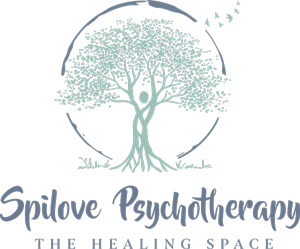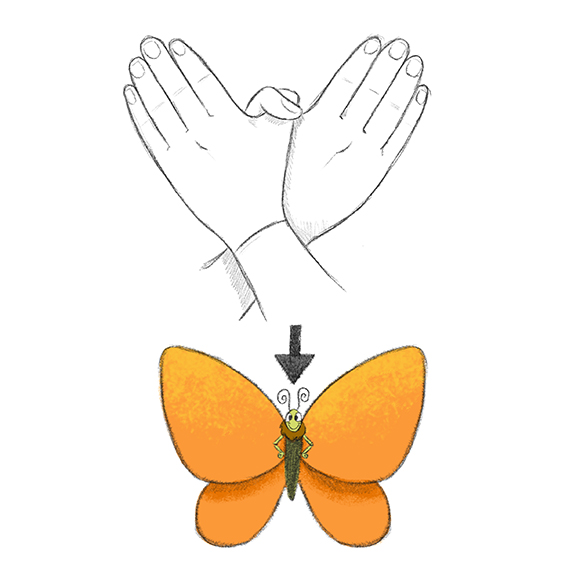Holidays may be happy and exciting for some of us and for some, they are also very stressful. Food is definitely a big deal during the holiday season for most people. Gym memberships go up afterward, people are often found dieting or “cheating” on their diets. Some binge, some restrict, some over-eat and some fall apart. I’d like to help you find a bit of peace from my corner of the world during this time when Christmas is fast approaching. If you haven’t already read them, check out some free tips on normal eating, getting grounded, reducing anxiety, navigating the grocery store… They should prove useful for you as well.
Here are some tips specific to Christmas:
1. Create an intention for this holiday
Remember that Christmas can be about celebrating spirituality. It can be about enjoying family or giving. It can be about service, love, bundling up on a cold day or anything you want it to be!
What would you LIKE your intention to be for Christmas this year?
Find a purpose and go for it. If your purpose is about service, think about how you’d like to be of service. It could be as simple as helping to set up or clean up the party. You could help the less fortunate through a soup kitchen or donating gifts to children who need them. If you’d like your purpose to be about reading a great book and drinking tea, then go for it! Any intention you’d like for Christmas is yours to have!
2. Get Grounded:
BEFORE you leave your house. Think about what grounds you? Do something that feels very grounding for you and set an intention to keep checking in with yourself during the day. One of my favorite ways to get grounded is to ask myself
“Where are your feet?”
– then look down at them; wiggle my toes, feel my feet on the floor or in my shoes. When I do that, I can rest assured that right here, in this moment, I am safe. In this moment, where my feet are, I am okay. Here are some other examples of grounding activities:
- Prayer and meditation
- Aromatherapy: earthy smells like cedar, bergamot, and pine can be particularly grounding
- Yoga
- Coloring mandala’s or other coloring
- Going for a walk
- Make a list: of anxieties, gratitude’s or plans, etc.
- Have a bit of a plan for the day – perhaps write it down in the morning.
- Journaling
3. Create Foods You Love
Try a new recipe you've been thinking about. Bring safe foods for you to the event you go to so that you have at least one option while you're there.
4. Don't Push Yourself
This is not the time for major challenge meals. While I encourage you to taste some of every food you're interested in, if you know that a certain food will completely set you off, just avoid it for now. Challenge meals are best done with the support of a therapist or a support community. You can practice eating challenge meals until they're no longer as challenging. Once you've accomplished taking the power out of the challenging foods, THEN you can incorporate them into your holiday festivities. In this instance, it might be better to be safe than sorry - don't push yourself so hard that you find yourself wanting to act out in a binge-purge cycle. Support yourself in enjoying Christmas as much as possible rather than pushing yourself into discomfort.
5. Contain the food
Do your best to eat meals at the normal times you usually eat them. So instead of skipping breakfast and going to Christmas hungry, eat your normal breakfast.
When you get to your event, check into your hunger cues.
On a scale of 0-10, with zero being extremely starving, 5 is having a light sense of satisfaction – being neither hungry nor full and ten being the most stuffed you’ve ever experienced. How hungry are you? Aim for letting yourself empty out to a 2-3 before eating a meal. See if you can stop eating at a 5-7.
Once you are hungry, rather than grazing on all the different foods, make a plate.
Allow yourself to put at least a little bit of each food you love on the plate or foods you’d like to try.
Skip the foods that don’t interest you much. Sit down and really savor the foods you chose. Check in with your hunger and satiety signals a few times while you eat your plate. Once you are satisfied, tell yourself that you can have more when you are hungry again and follow through. Making a practice of using hunger and satiety cues is extremely helpful in finding balance with food.
6. Keep Your Boundaries
People tend to project their OWN food and body issues onto others’. So if you notice yourself engaged in a conversation with someone who’s trying to talk you in or out of eating or commenting on your body, take a step back.
Check in with yourself and see what YOU NEED, rather than what this person is trying to get you to do.
Saying you need to use the bathroom is always an easy out to give yourself some time and space to check back in with yourself and get grounded. Take some deep breaths, splash some water on your face and ask yourself what you need in that moment to take care of yourself before you leave the bathroom. Here are some examples of things you can say to people who are pushing you:
- “No, thank you”
- “I’m okay right now”
- “Yes, I’m going to enjoy this food right now”
- “I’m not hungry”
- “I’ll let you know when I’m ready for ...”
- “I’d rather not discuss my body with you”
Practice saying these boundaries out loud BEFORE the holiday, so that when you’re in the moment, they flow easily and effortlessly.
7. Ask for Help
Enlist a member of your support group to be ‘Holiday Buddies’ to practice what I call ‘Book Ending’: Have a few agreed upon times you with check-in with one another throughout the day – perhaps before, during and after. You could plan to call or text one another to report how things are going. If you don’t hear from your buddy, shoot them a text to see what’s going on. In this way, you have another person who has your best interest in mind to be accountable to. This practice is also helpful in getting your mind off yourself and your own difficulties.
8. Breathe
Remember that Christmas is only one day out of the year. Breathe into the gifts you receive whether they are material or spiritual, gratitude or emotions - breathe into this experience of life and know that you can get through this. You don't need to be perfect and neither does your holiday. When you feel yourself getting overwhelmed, focus on your breath. Remember you can start your day over at any time.
I hope you've found these Christmas tips helpful. If you're still feeling overwhelmed, please feel free to give me a call at 610.314.8402 - I'd be happy to help.
Merry Christmas from Tiffany Spilove Psychotherapy in West Chester, Pa!
Spread the LOVE! Share this article with someone who might need it - let me know your thoughts and other suggestions!





















